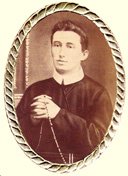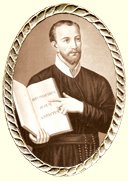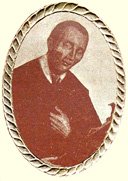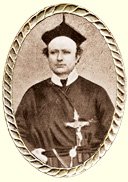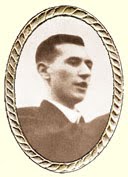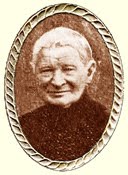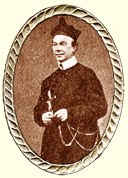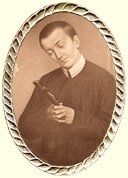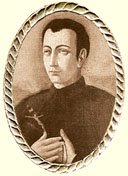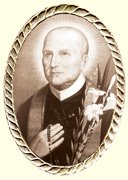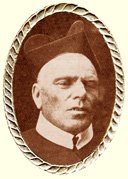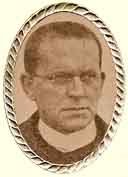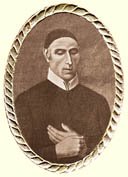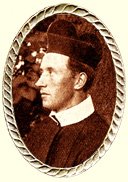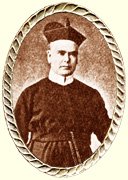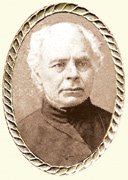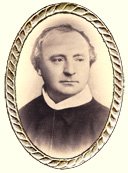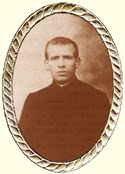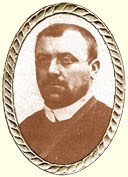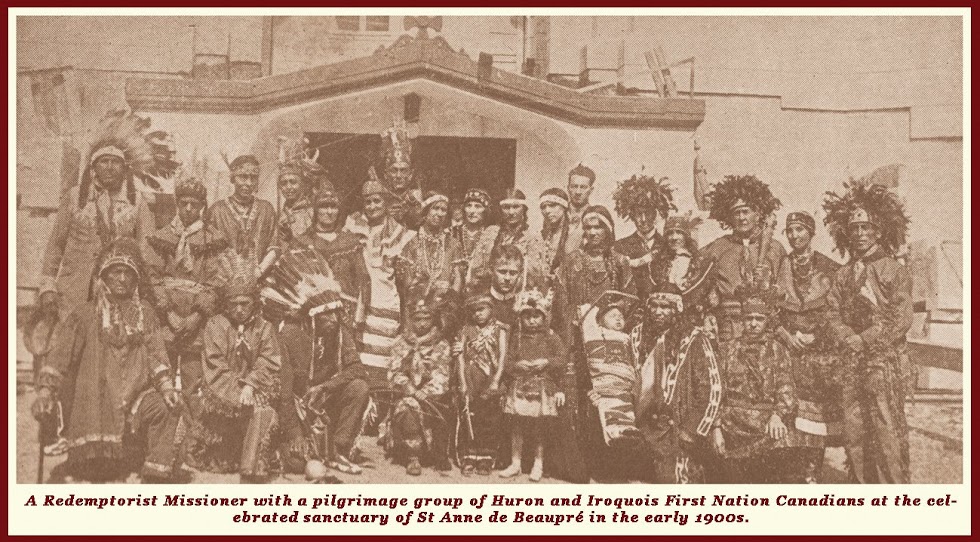Rev Fr Henry Harbison C.SS.R. (1820-1889)
 The founding of the Redemptorist Monastery of St. Joseph’s, Dundalk, Ireland, is one of Father Harbison’s chief works - the noble pile of buildings which he erected will ever be a monument to his energy and zeal.
The founding of the Redemptorist Monastery of St. Joseph’s, Dundalk, Ireland, is one of Father Harbison’s chief works - the noble pile of buildings which he erected will ever be a monument to his energy and zeal.As God has, at all times, trained great men for the service of His Church, under the guidance of others remarkable for learning and holiness, so He ordained that Father Harbison should fit himself for the work of the Missions under the guidance of that most zealous and successful missionary, Father Bernard. What his guide and master had done in Holland and America, Father Harbison did with equal success in Ireland. His piety, his learning, his appearance, his voice, his character, his quickness to understand the needs of his audience, and the power he exercised over the multitude, fitted him to the head of the bands of missionaries which he led in his fight against sin and the strongholds of satan both in town and in country.
One proof of his power must suffice. People still living have never forgotten Father Harbison’s first sermon at the great Mission of 1868. They say men crowded every part of the church, so that the preacher passed with difficulty to the pulpit. At last Father Harbison stood before his audience and gazing upon the sea of upturned faces, he paused. Every eye was fixed on him, and he felt how much depended on his sermon. Then his voice broke upon the stillness, and his text rang through the sacred building: “There is faith still in Garryowen.” For an hour he kept the men spell-bound, with the result that the success of the Mission was secured.
Henry Harbison was born in 1820, in Moneymore, Co. Derry, in the Archdiocese of Armagh. In 1837, he entered Maynooth. Having finished his studies with great distinction, he was ordained priest on 7th March, 1847. In leaving Maynooth, his Archbishop proposed to place him at the head of the Diocesan Seminary, but this, as well as other positions of importance, he humbly declined, preferring, as he did, missionary work. He was, therefore, appointed curate of Dungannon where he spent six years.
He felt, however, a call to religion, and having prayed and taken advice he offered himself as a candidate for the Congregation. He was accepted and sent to St. Trond, in Belgium, to make his Novitiate. This was in 1854, and the following year he made his Profession. He began his missionary work in England, but after a short time was attached to Limerick, Ireland, where he remained until 1876, when he was named Superior of the new foundation in Dundalk. He was at all times considered an unrivalled popular preacher, but it should be remembered that he was not less successful as a confessor.
 Father Harbison was successful not only in his Missions, but also in the Spiritual Exercises which he gave to the clergy, to religious, to seminarists, and to the laity. After a retreat which he gave to the clergy of the Archdiocese of Westminster, and at which Cardinal Manning himself assisted, his Eminence said to him full of emotion: “O my Father, you have made me and my clergy so happy in our vocation!” He instructed, he moved, he made his hearers happy in serving God in the state to which they were called.
Father Harbison was successful not only in his Missions, but also in the Spiritual Exercises which he gave to the clergy, to religious, to seminarists, and to the laity. After a retreat which he gave to the clergy of the Archdiocese of Westminster, and at which Cardinal Manning himself assisted, his Eminence said to him full of emotion: “O my Father, you have made me and my clergy so happy in our vocation!” He instructed, he moved, he made his hearers happy in serving God in the state to which they were called.He had, at the desire of the Most Rev. Father General, the consolation of accompanying Father Coffin to Rome. His lively faith made every stone of the Eternal City dear to him, and the letters he wrote on his return show how deeply he was impressed, and how greatly he appreciated his privilege.
After twenty-one years in Limerick, Father Harbison left for Dundalk; but while occupied in founding a house there, he continued his apostolic work until the year 1887. His great frame gradually gave way under the pressure of his continual labours, and absolute necessity obliged him to take rest. It was a preparation for his eternal rest. He understood this and thanked God for it every day.
On Missions he was often, so to say, forced to neglect himself, that is, to reduce his own spiritual exercises to the minimum, that he might have the maximum of time to devote to the saving and sanctifying of souls. But now that was all changed. He had the whole day to himself, and during the last he was practically relieved of the burden of office while still remaining Superior. His days were a series of spiritual exercises, and each of them a preparation for the end. He had his Director, Rev. Father Doherty, near him, and he was obedient to him as if he were a little child. Sickness proves what a man is, and the sickness of Father Harbison proved him to be a man of great faith, of unbounded confidence in God, of deep humility and overflowing with brotherly love. It was then one saw how intense was his love for Our Blessed Lord and His Most Holy Mother.
He practised during that last year, with perfection, what he had taught others, and it was thus the Prince of Pastors found this edifying religious, and holy Priest watching when He came to take an account of his stewardship, on the 8th of October, 1889. Well may we hope that he was greeted with the sweet words: “Well done good and faithful servant, enter into the joy of thy Lord.”
But while full of that hope his brothers in religion, his friends in Dundalk, Limerick, and all over Ireland, did not fail to send up fervent prayers for the repose of his soul, that cleansed, if need be, from all stain he might quickly enter into his eternal repose. †




















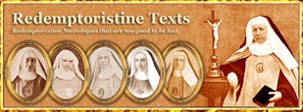
.jpg)









